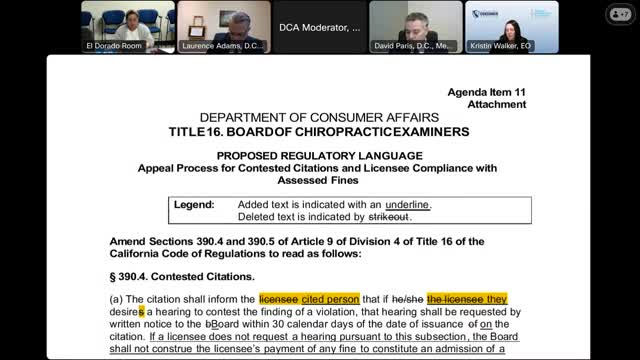Article not found
This article is no longer available. But don't worry—we've gathered other articles that discuss the same topic.
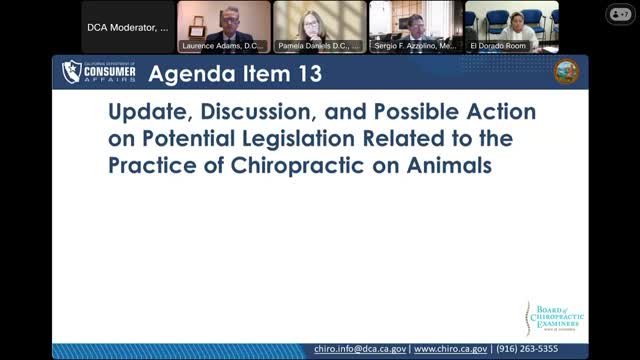
Board discusses proposed bill to allow certified animal chiropractic with registration; veterinary group urges opposition
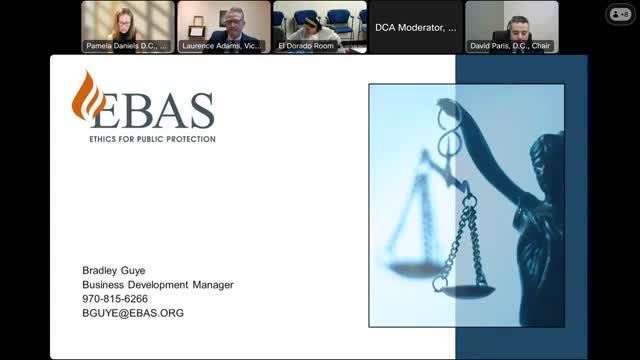
Board hears EBOS ethics‑assessment presentation as remediation tool; staff and members ask about pass rates and workshops
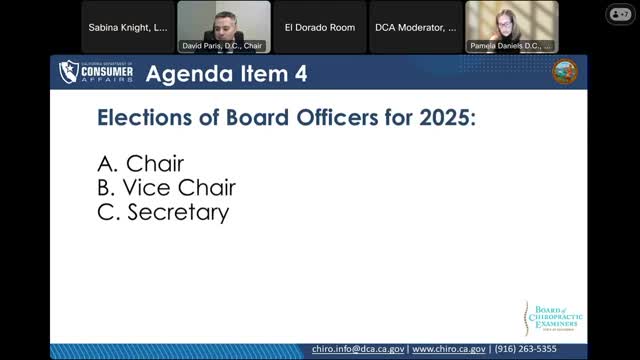
DCA explains fee deferrals, replacement-license waivers and support resources for LA wildfire survivors
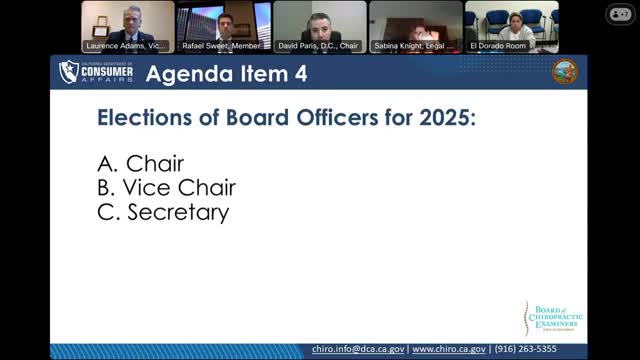
Board elects officers, ratifies licenses and moves several rulemaking and administrative actions
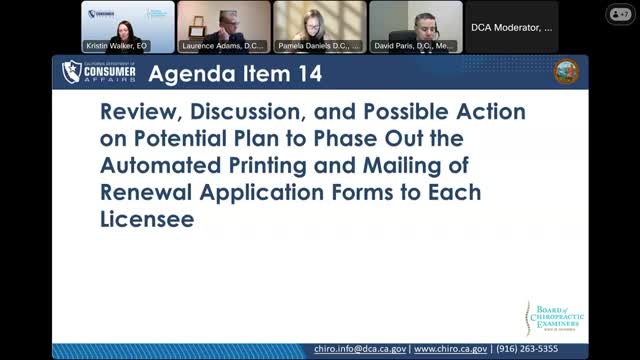
Board approves phased plan to reduce printed renewal mailings; plans postcards and email-first approach by 2028
